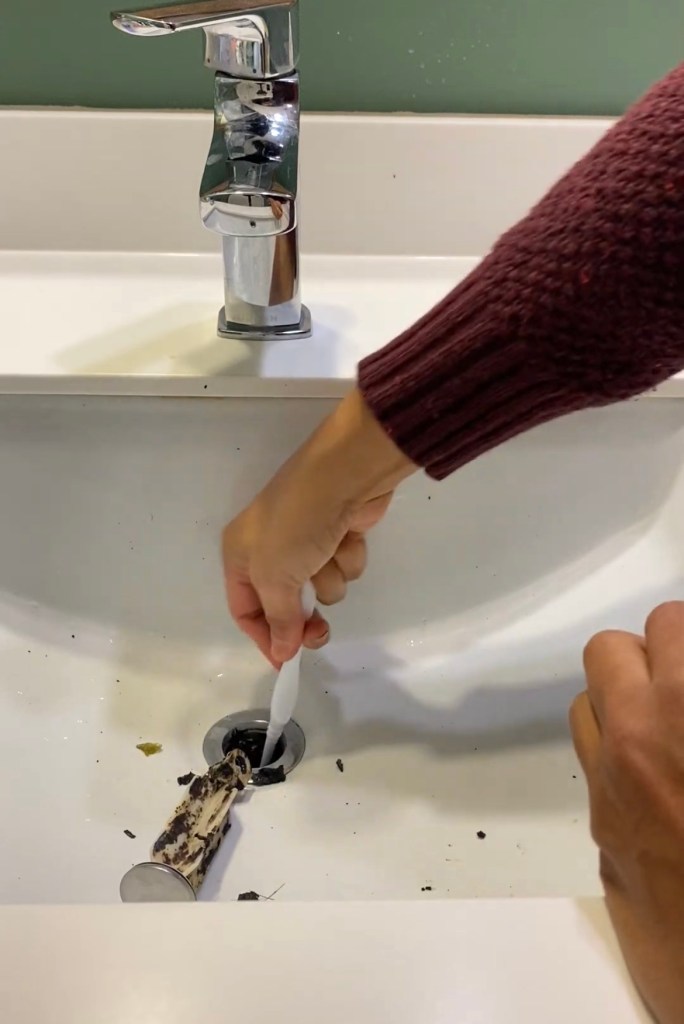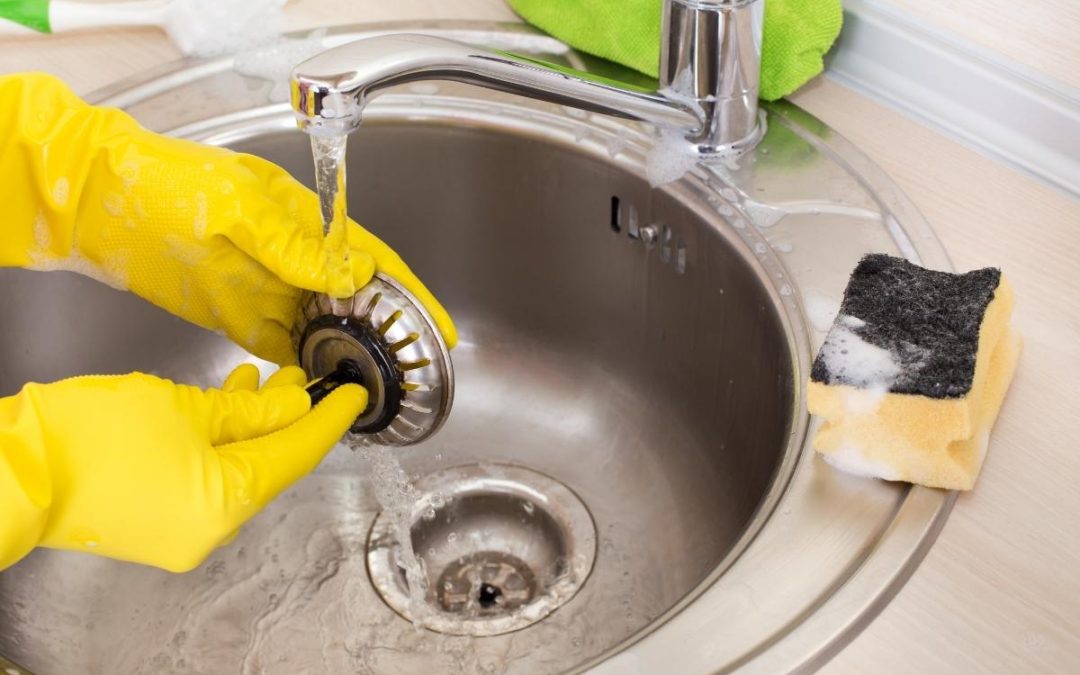Quick Fixes For A Slow-Draining Sink
Quick Fixes For A Slow-Draining Sink
Blog Article
What are your opinions on 4 Tips to Fix a Slow Draining Sink?

Intro
We have actually all existed: You're cleaning your teeth or washing your hands, and you observe the water merging in the sink. As opposed to rapidly swirling down the tubes, it remains, turning your once-refreshing morning routine right into a small swamp scene. A slow-draining sink isn't just frustrating; it's commonly an indicator of bigger plumbing concerns prowling under the surface. The bright side is that most slow-draining sinks can be fixed with a little expertise, a couple of standard tools, and some persistence. Prepared to tackle this job head-on? Let's roll up our sleeves and dive right in.
Recognizing the Causes of a Slow-Draining Sink
Prior to you start poking around in your pipes, it aids to understand what may be creating the slowdown. Comprehending the origin makes it simpler to choose the best repair.
Usual Wrongdoers Behind Slow Water Drainage
So, what's blocking points up? Commonly, it's a mixture of everyday debris-- think hair, soap residue, tooth paste residue, and leftover food fragments. Gradually, these little bits collect and hold on to the pipe walls, gradually tightening the flow and making it harder for water to go through. In many cases, mineral deposits from tough water can also add to the gunk, producing the best storm for stubborn obstructions.
When is it Time to Do Something About It?
If you observe the water draining slower than usual, it's an excellent concept to intervene faster rather than later on. Waiting as well long can cause complete clogs, unpleasant smells, or perhaps pipe damages. If the water takes more than a few seconds to clean out after turning off the faucet, consider it a red flag and prepare yourself to put on your do it yourself hat.
Tools and Products You'll Require
The right devices make all the distinction. Luckily, you will not require a totally stocked plumbing professional's van to get the job done.
Essential Tools for DIY Fixes
A bettor is your best beginning point. A little, sink-sized plunger produces suction that can remove minor clogs. For more persistent clogs, a drain snake (often called a plumbing professional's auger) functions wonders. A set of gloves, a flashlight, and perhaps a set of protective goggles are also helpful.
Recommended Cleansing Solutions
Moderate meal soap and warm water can assist break down greasy accumulation. A mixture of cooking soda and vinegar is a reliable natural home remedy, and enzymatic cleaners provide an even more green technique. Keep chemical drainpipe cleaners as a last resort, as they can be harsh on your pipelines.
Safety And Security First: Preventative Measures and Preparations
Prior to you launch into unclogging mode, consider security. You're managing possibly filthy water and particles, so slip on a set of gloves. If you're using chemical cleaners, make sure the area is well-ventilated and comply with the instructions on the label.
Safety Gear and Work Space Configuration
Put down some old towels or rags around the sink location to catch splashes. Remove any type of items that could enter your method, like soap dispensers or toothbrush holders. See to it you have good lights-- get a flashlight if needed.
Step-by-Step Guide to Fixing a Slow-Draining Sink
Now, let's get involved in the nitty-gritty. This step-by-step procedure will certainly lead you via basic strategies to restore your sink's drainage.
Step 1: Remove and Clean the Stopper
Commonly, the stopper (that tiny plug you lower to obstruct water) is the very first wrongdoer. Remove it carefully and wipe any type of hair or crud entraped around its base. Wash it thoroughly before putting it back in position.
Action 2: Utilize a Plunger to Remove Debris
Got that bettor prepared? Placement it over the drainpipe and offer it a couple of company pumps. The concept is to produce suction that can loosen any type of clog. If you see littles particles floating up, you're on the best track.
Step 3: Attempt a Drain Serpent or Cable Hanger
If the bettor doesn't suffice, it's time to highlight the drain snake. Delicately feed it into the drain and spin as you go. You might really feel some resistance-- that's most likely the clog. Maintain turning and drawing till you get rid of the blockage. If you do not have a drainpipe serpent, a straightened out wire wall mount can operate in a pinch.
Tip 4: Apply a Do It Yourself Drain Cleanser
A natural cleaner made from cooking soft drink and vinegar can break down recurring grime. Pour half a mug of cooking soft drink right into the drain, adhered to by half a mug of vinegar. Let it fizz for about 15 mins, after that flush with warm water. This chain reaction often does marvels for small blockages.
Step 5: Rebuild and Examine the Sink
Put whatever back with each other and run the faucet. Does the water currently swirl away at a reputable speed? If yes, provide yourself a pat on the back. Otherwise, don't misery-- there are still a couple of more dress up your sleeve.
Different Approaches for Stubborn Clogs
Not all clogs are produced equal. If your sink still refuses to work together, think about these alternate remedies.
Baking Soda and Vinegar Technique
We currently touched on this, however it deserves keeping in mind again. This gentle, eco-friendly approach is safer than chemical cleaners and typically rather efficient.
Enzymatic Drain Cleaners
Enzyme-based cleaners use all-natural microorganisms to digest organic matter. They're an outstanding choice if you're wanting to prevent severe chemicals. Simply keep in mind, they might take a bit longer to function their magic.
Chemical Drainpipe Cleaners: Advantages And Disadvantages
Chemical cleansers can blast through challenging obstructions quickly, however they're not without disadvantages. They can produce heat and fumes, damages pipes if made use of excessively, and position ecological dangers. Utilize them sparingly, and always adhere to the instructions meticulously.
Preventive Measures to Maintain Your Sink Flowing
Avoidance is the very best cure. By taking on a few easy behaviors, you can keep your sink from decreasing to begin with.
Routine Cleaning Behaviors
Clean down the sink container and fixture area frequently. Get rid of hair or food bits before they have an opportunity to wash down the drainpipe.
Avoiding Dangerous Compounds Down The Tubes
Reconsider before dumping coffee grounds, grease, or fibrous veggie scraps down the sink. These perpetrators hold on to pipe wall surfaces, developing obstructions with time.
Regular Upkeep Checks
Set up a quick regular monthly examination. Run warm water via the sink for a few minutes, taking note of the flow. If it seems sluggish, act quickly prior to it becomes a full-on blockage.
When to Call a Specialist Plumbing Technician
Occasionally, regardless of exactly how hard you try, that block simply will not move. That's when it's time to generate the pros.
Indications That Indicate a Much More Serious Concern
If your sink drains gradually regardless of numerous efforts, or if you see water backing up in various other fixtures (like your shower or toilet), you may have a much more severe plumbing concern lurking much deeper in the system.
Balancing Do It Yourself Efforts with Expert Assistance
While DIY can save you money and supply a feeling of achievement, there's no pity in calling an expert. A specialist plumbing professional can analyze your entire pipes configuration, guaranteeing there's no underlying damages or lasting trouble that might cost you more later on.
Comparing Prices and Long-Term Solutions
Before deciding, think about the big picture. A low-cost, quick fix could fix the problem momentarily, yet purchasing a more long-term solution could conserve you money and stress over time.
Evaluating the Costs of DIY vs. Specialist Fixes
DIY solutions commonly set you back bit greater than the rate of a bettor or a bottle of baking soft drink. Specialist services, on the other hand, featured a price however might avoid repetitive concerns and expensive repairs later on.
Purchasing High Quality Fixtures and Upgrades
If your sink's layout contributes to regular clogs, it could be worth upgrading to higher-quality fixtures or altering the plumbing design. Consider this a financial investment in your house's performance and comfort.
Verdict
A slow-draining sink can seem like a small inflammation, yet it's commonly an indication that your pipes requires a little tender loving care. By recognizing the source, employing the right tools and methods, and committing to easy preventive measures, you can maintain your sink streaming easily. And when all else falls short, never ever be reluctant to hire a professional-- your home's plumbing deserves the investment in care and maintenance.
Three Common Ways to Fix a Slow Drain
Baking Soda Method
Boil a full pot of water. Measure out cup of baking soda and pour it down the drain. Then take cup of the magical cleansing substance known as white vinegar and drop that down there too. Allow the mixture to fizz in the drain for five minutes as the vinegar and baking soda combine. Now dump in that whole pot of boiling water. This combination of cleaning substances should clear out anything that is causing your sink to drain slowly. If it doesn t...
Zip-It
If the baking soda method doesn t clear out your drain, it may be because a significant amount of hair and/or other debris has collected there and you need to remove it. Purchase a Zip-It tool at any home improvement or hardware store and insert it into your drain. It will catch any collected hair or debris that s blocking the flow of water. Pull it out. If it s got a big clump of hair, etc. on the end, you ve probably got your culprit.
Drain Cleaner
If these methods don t work, there is the standard drain cleaner that you can also buy in a hardware store or even your local grocery store. It s better if you can use a household solution, but these drain cleaners often work in a pinch. They re very simple to use. You generally just dump them in your drain and wait. If even this method is not effective, it may be time to call the plumber.
https://www.mrrooter.com/oneida/about-us/blog/2017/july/three-common-ways-to-fix-a-slow-drain/

I ran across that post on 7 Ways To Fix A Slow-Draining Sink Before You Call A Plumber while surfing around the internet. For those who enjoyed our article kindly remember to share it. We appreciate your readership.
Click Here Report this page